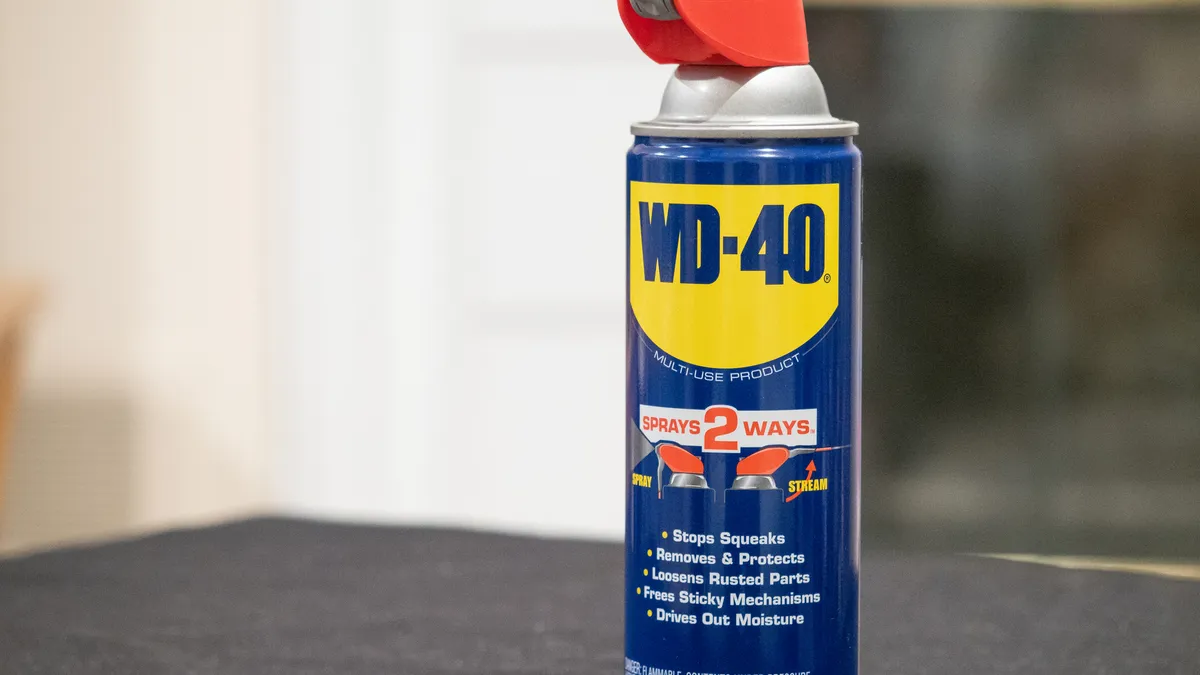WD-40 Company is planning to further develop its ESG strategy after carrying out its first sustainability assessment.
The household products company collaborated with a third-party partner to develop an assessment among its Tier 1 suppliers in the areas of sustainability governance, greenhouse gas emissions, energy efficiency, renewable energy, water usage and operations, a spokesperson told Supply Chain Dive in an email.
This process enables WD-40 to “establish a good understanding of the status of each supplier” to have a clearer picture of initiatives that may help the company improve its supply chain operations.
Whether there will be additional assessments has yet to be determined, although the spokesperson noted that WD-40 may carry out other evaluations to monitor its progress. While WD-40 hasn’t disclosed its larger supply chain sustainability goals, the company will be setting additional goals in its next ESG report this fall, they added.
“Our next step is the creation of WD-40 Company’s first responsible sourcing policy, aligned with amendments to our supplier and distributor code of conduct, which will make clear the expectations of our partner organizations in all areas of ESG, but especially environmental sustainability,” the spokesperson said.
A change in executive leadership at WD-40 is one of the driving factors behind its decision to start supplier assessments, according to the spokesperson. Steve Brass, who was named CEO in 2022, “made it one of his top priorities to pivot our company toward a more sustainable future during his tenure,” they said.
Brass told analysts during a January earnings call that the supplier assessments "will help us develop our approach for how we engage with our supply chain partners over the coming years to address changing regulatory requirements, our ESG program, and stakeholder expectations as they evolve."
Other companies have also been collaborating with suppliers in a bid to cut down on carbon emissions across their supply chain operations.
Walmart, for instance, invited suppliers to commit to reductions as part of its Project Gigaton. Since Project Gigaton’s launch in 2017, nearly 6,000 suppliers have joined the effort through access to tools and platforms. Meanwhile in January, grocer Kroger set a goal that requires its fresh produce suppliers to use Integrated Pest Management practices to create more sustainable supply chains.














